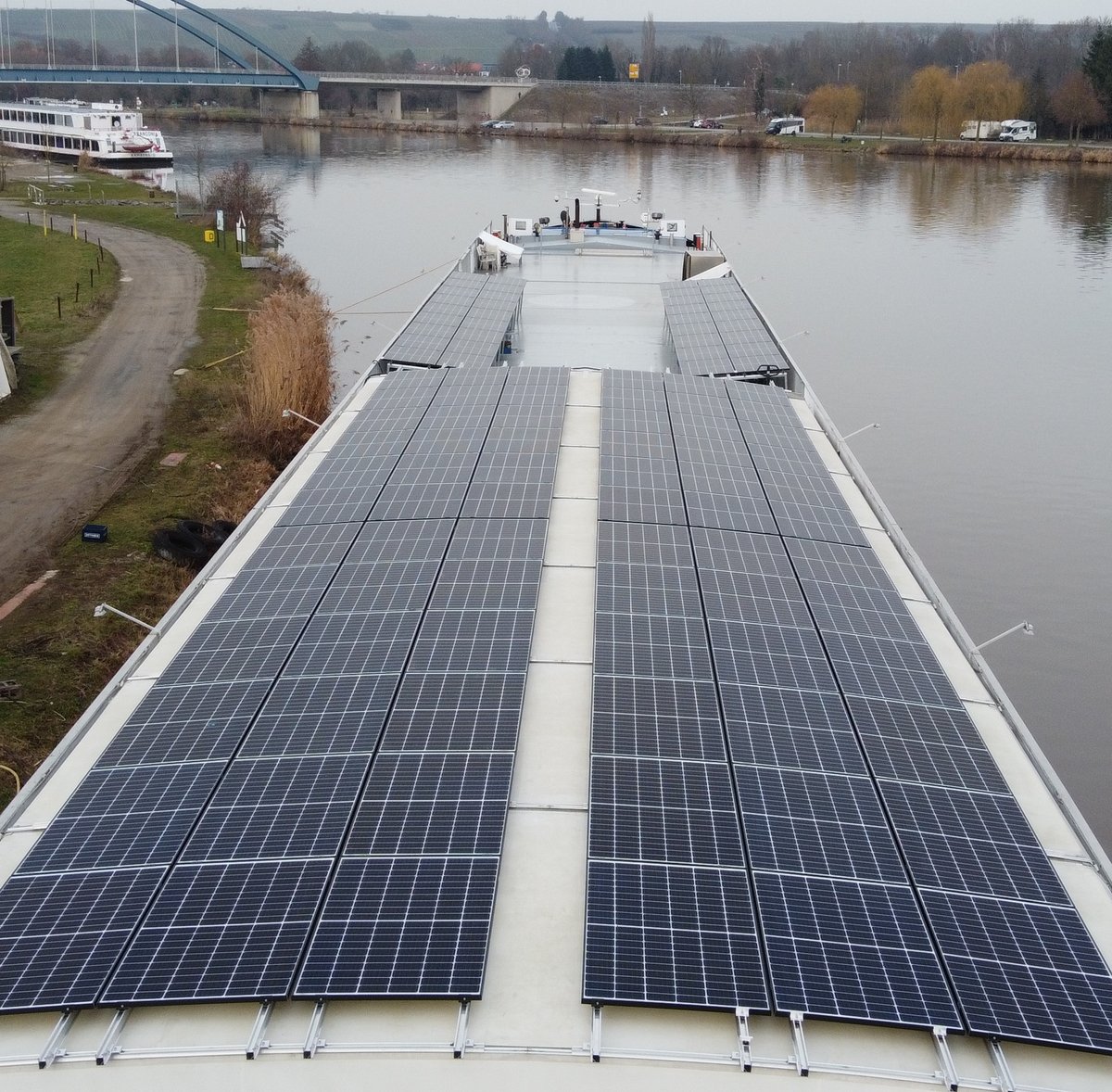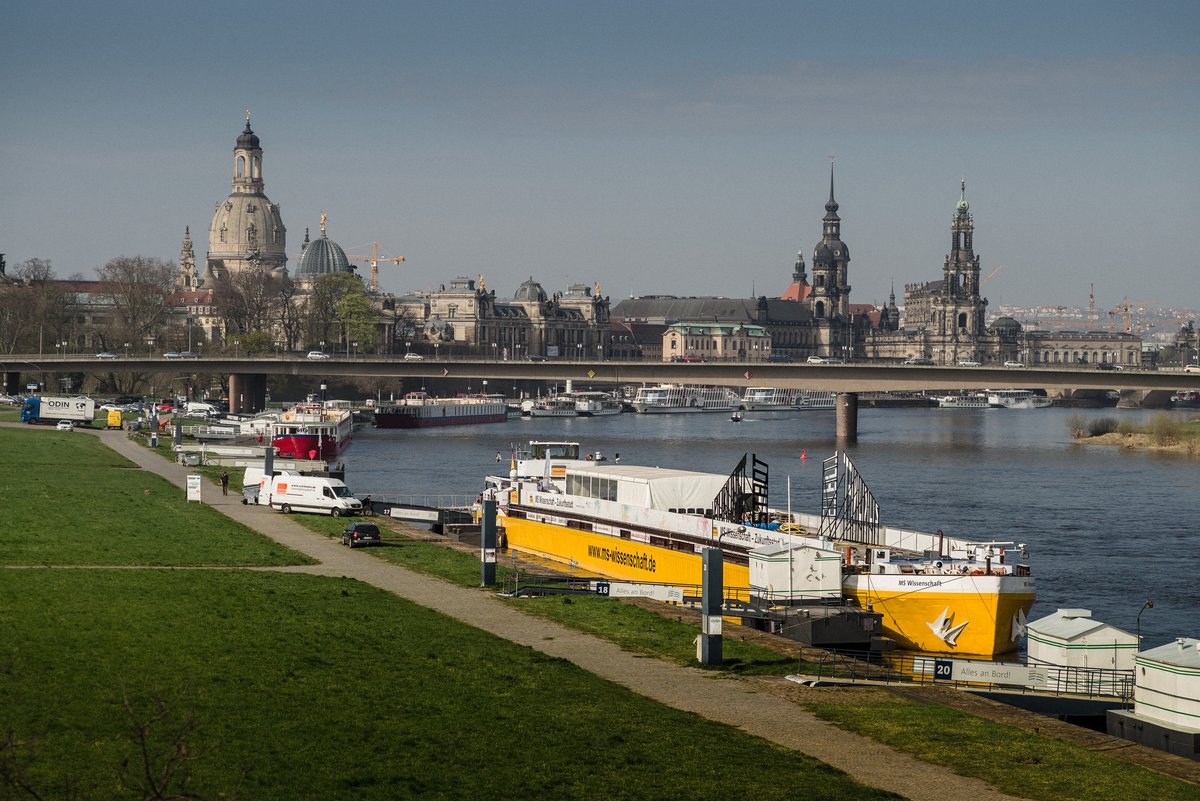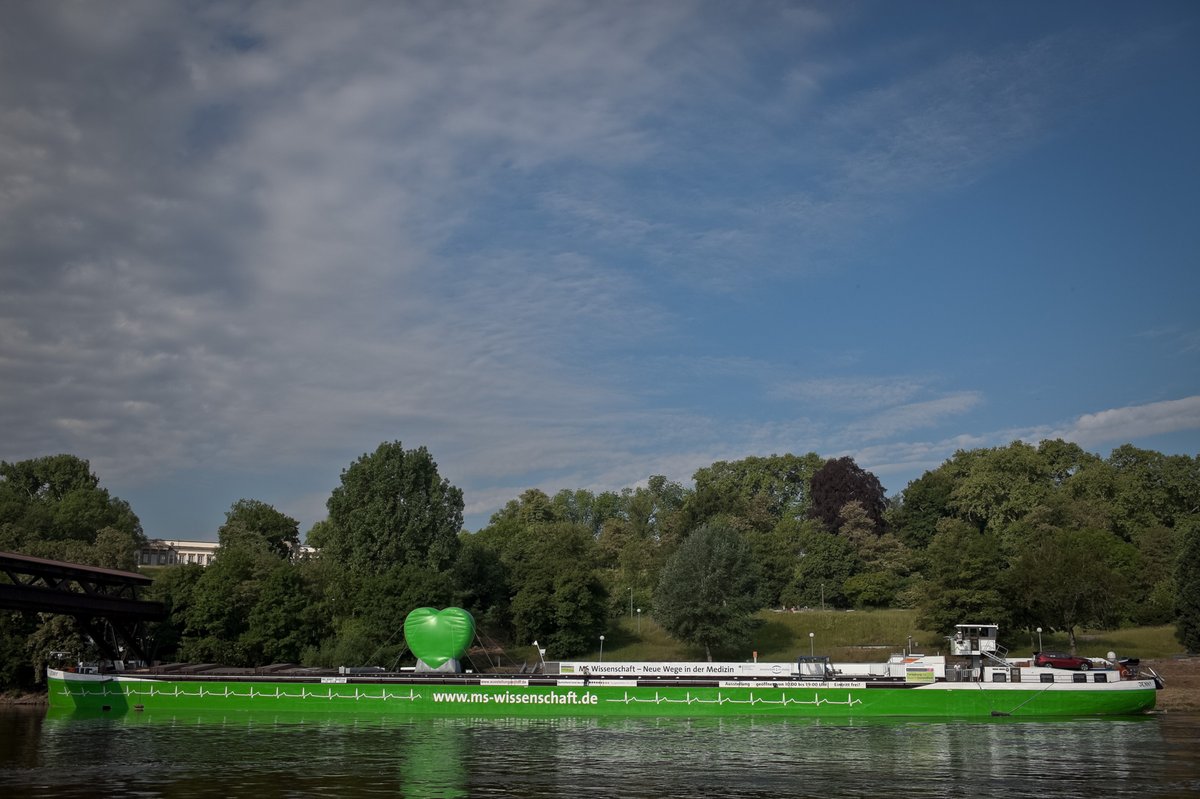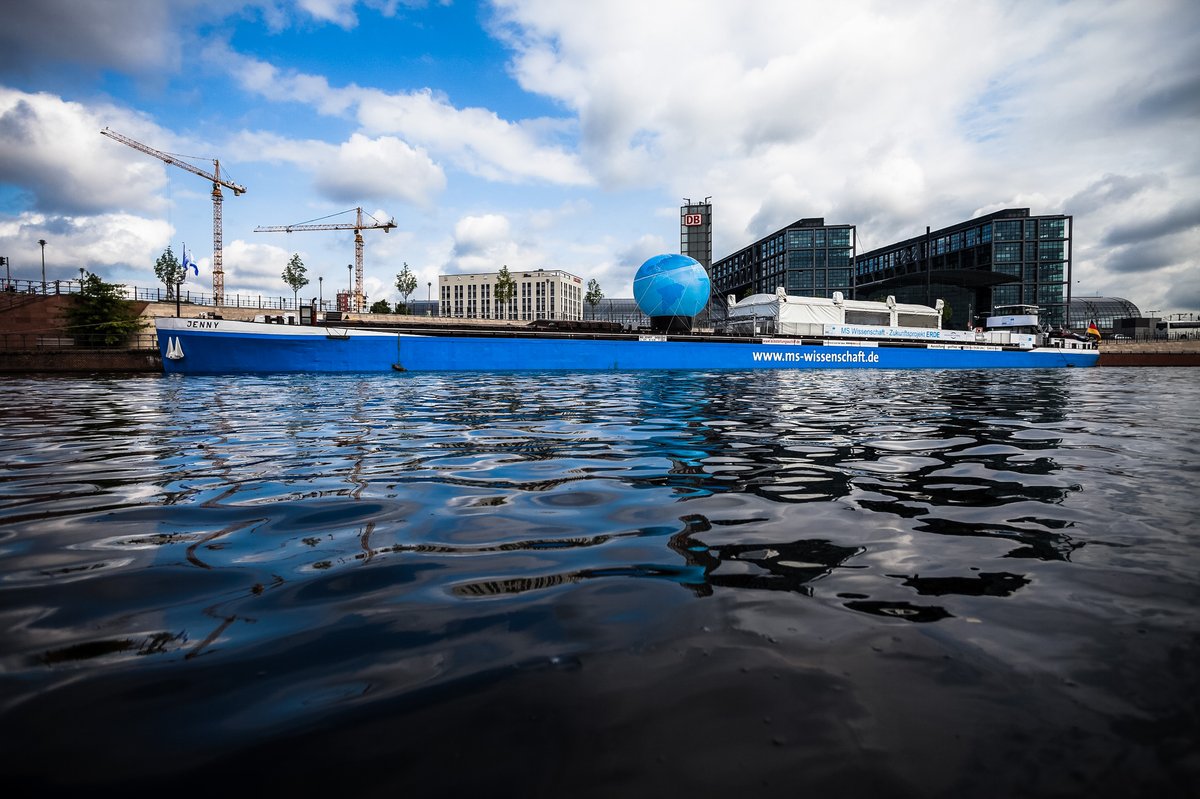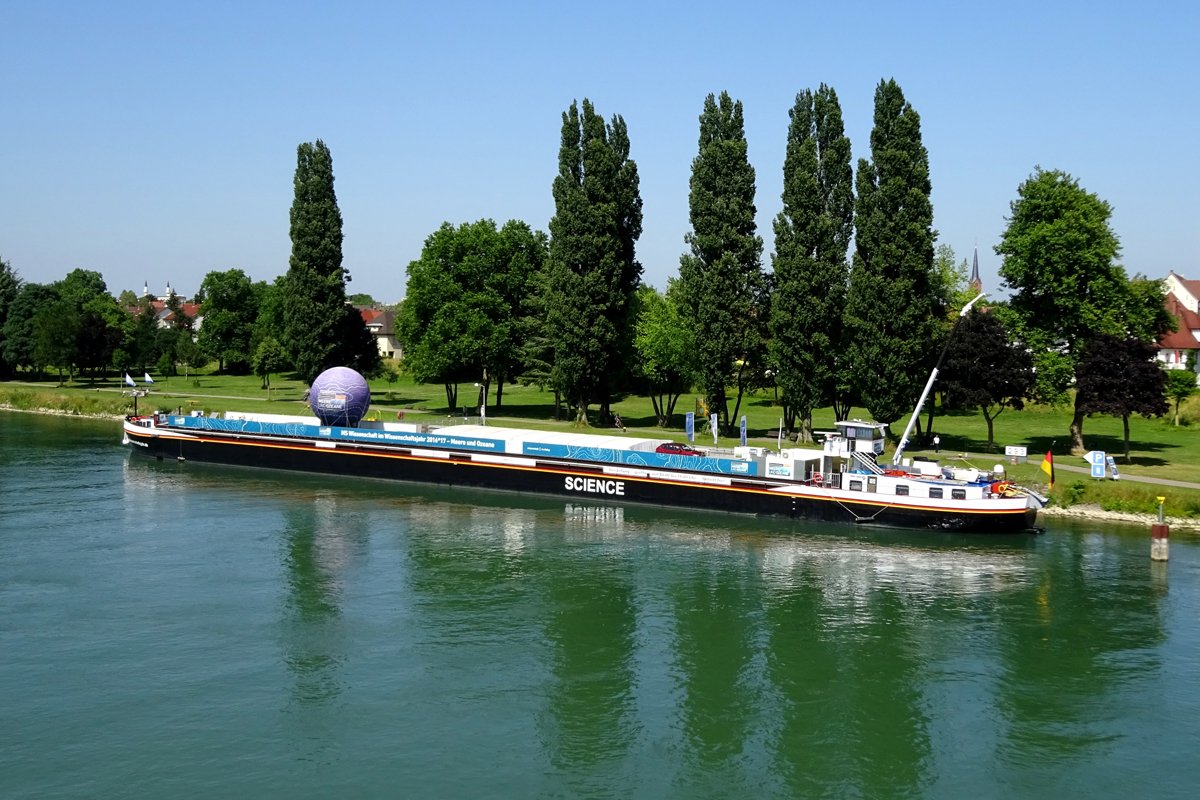The MS Jenny, as the ship is called when it is not sailing in the name of science, was built in 1969 as MS VERA at the Elfring shipyard in Haren (Ems). After being sold to the Netherlands, it was bought by Karin and Albrecht Scheubner in 1987. Thanks to the resourceful owner and captain couple, it was converted into an exhibition and event ship. Since 2020 Andreas Schüll has been at the helm.
The ship has a length of 102 metres and a loading area of around 600 square metres. As a cargo ship, the MS Jenny has a loading capacity of 1,919 tons. This is roughly equivalent to the loading capacity of about 76 trucks.
The MS Jenny is driven by a Mitsubishi engine with an integrated SCR catalytic converter, which converts nitrogen monoxide (NO) and nitrogen dioxide (NO2) up to over 90 % to nitrogen (N2) and water (H2O).
MS Wissenschaft has been using GtL fuel for its diesel engines and gensets since 2016 - making it the first ship in Germany to do so. GtL fuel has physical properties that are broadly similar to those of conventional diesel fuel. However, the environmental compatibility of GtL fuels is much better: they are sulphur-free and contain neither organic nitrogen nor aromatic hydrocarbon compounds. The latter also leads to much lower soot emissions. They are also virtually odourless. At the same time, the fuel's efficiency values are very good. The fuel is produced from natural gas, hence the abbreviation GtL: Gas to Liquid.
